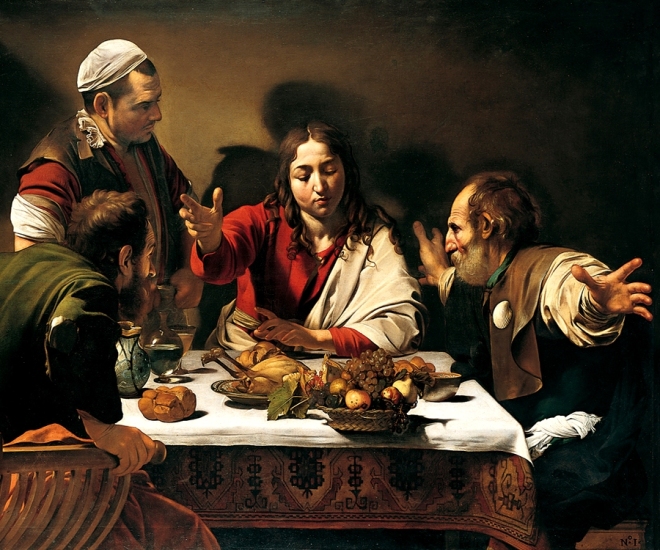“We are not told that Jesus ‘survived death’; we are not told that the story of the empty tomb is a beautiful imaginative creation that offers inspiration to all sorts of people; we are not told that the message of Jesus lives on. We are told that God did something – that is, that this bit of the human record, the things that Peter and John and Mary Magdalene witnessed on Easter morning, is a moment when, to borrow an image from the 20th century Catholic writer Ronald Knox, the wall turns into a window. In this moment we see through to the ultimate energy behind and within all things. When the universe began, prompted by the will and act of God and maintained in being at every moment by the same will and action, God made it to be a universe in which on a particular Sunday morning in AD33 this will and action would come through the fabric of things and open up an unprecedented possibility – for Jesus and for all of us with him: the possibility of a human life together in which the pouring out of God’s Holy Spirit makes possible a degree of reconciled love between us that could not have been imagined.
It is that reconciled love, and the whole picture of human destiny that goes with it, that attracts those outside the household of faith and even persuades them that the presence of religion in the social order may not be either toxic or irrelevant after all. But for the Christian, the basic fact is that this compelling vision is there only because God raised Jesus. It is not an idea conceived by the spiritual genius of the apostles, those horribly familiar characters with all their blundering and mediocrity, so like us. It is, as the gospel reading insists, a shocking novelty, something done for and to us, not by us. How do we know that it is true? Not by some final knock-down would-be scientific proof, but by the way it works in us through the long story of a whole life and the longer story of the life of the community that believes it. We learn and assimilate its truth by the risk of living it; to those on the edge of it, looking respectfully and wistfully at what it might offer, we can only say, ‘you’ll learn nothing more by looking; at some point you have to decide whether you want to try to live with it and in it.’
And what’s the difference it makes?
If God exists and is active, if his will and action truly raised Jesus from the dead, then what we think and do and achieve as human beings is not the only thing that the world’s future depends on. We do all we can; we bring our best intelligence and energy to labour for reconciliation and for justice; but the future of reconciliation and justice doesn’t depend only on us. To say this doesn’t take away one jot of our responsibility or allow us to sit back; as Pascal said, we cannot sleep while Jesus is still in agony, and the continuing sufferings of the world are an image of that agony. But to believe that everything doesn’t depend on us delivers us from two potentially deadly temptations. We may be tempted to do something, anything, just because we can’t bear it if we aren’t making some visible difference; but to act for the sake of acting is futile or worse. Or we may be consumed with anxiety that we haven’t done enough, so consumed that we never have time to be ourselves, to give God thanks for his love and grace and beauty. We may present a face to the world that is so frantic with fear that we have left something undone that we make justice and reconciliation deeply unattractive. We never acquire the grace and freedom to give God thanks for the small moments of joy, the little triumphs of sense and kindness,” – Rowan Williams.
(Caravaggio’s Supper at Emmaus, 1601, via Wikimedia Commons)
